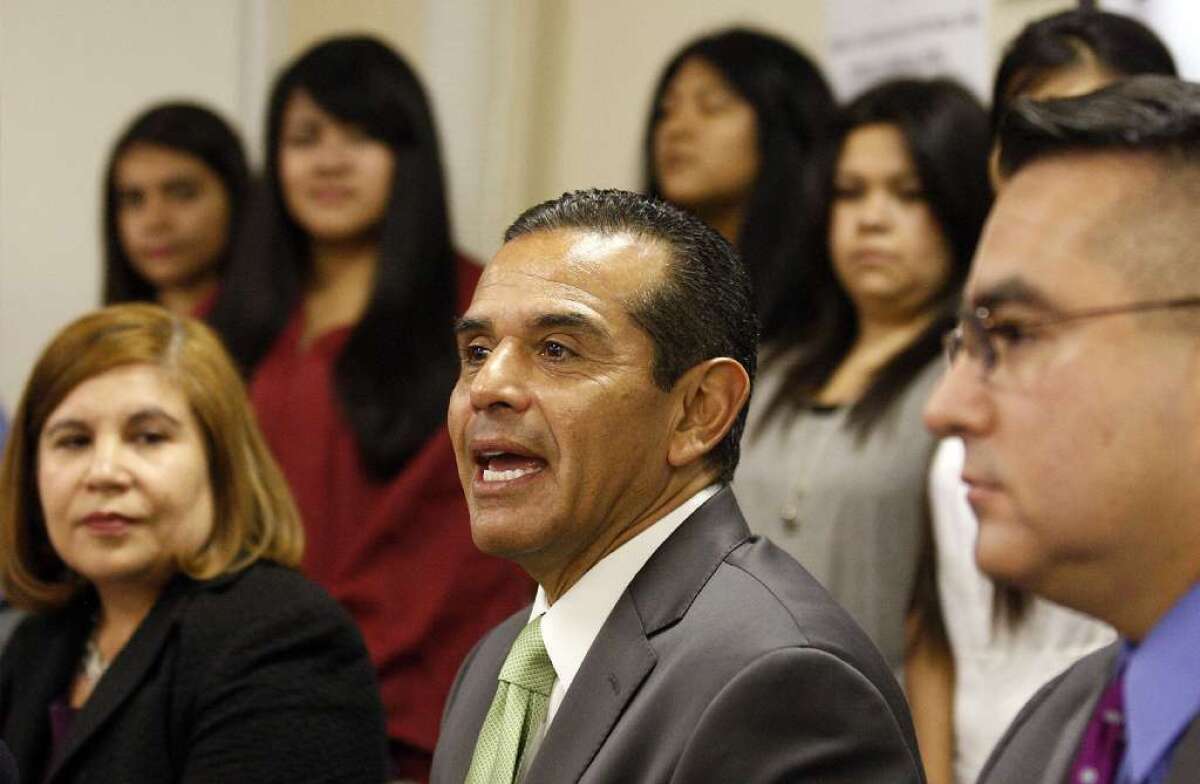Opinion: Was the Dreamers’ sales pitch too clever by half?

- Share via
This is the lead of a story The Times ran the other day about a Fourth of July swearing-in ceremony for new U.S. citizens presided over by President Obama:
“Kamar Osei Harris joined the U.S. Air Force last fall for the reasons most service members cite: love of country and sense of duty. The fact that it wasn’t technically his country didn’t occur to the Canadian-born son of parents from Barbados and Jamaica. ‘I didn’t even think of myself as a noncitizen,’ he said, until he began thinking about becoming a pilot.”
There is a fast track to citizenship for legal permanent residents who serve in the armed forces. Still, the reference to America not “technically” being Harris’ country reminded me of a comment Obama made in 2012 about a different group of would-be citizens: the so-called Dreamers (named after the never-enacted federal Dream Act).
This is what Obama said when he announced that up to 800,000 young people brought here illegally as children would be eligible to live and work in the United States:
“They are Americans in their hearts, in their minds, in every single way but one: on paper. They were brought to this country by their parents — sometimes even as infants — and often have no idea that they’re undocumented until they apply for a job or a driver’s license or a college scholarship.
“Put yourself in their shoes. Imagine you’ve done everything right your entire life — studied hard, worked hard, maybe even graduated at the top of your class — only to suddenly face the threat of deportation to a country that you know nothing about, with a language that you may not even speak.”
At the time I criticized Obama for reducing U.S. citizenship — a scarce and sought-after commodity — as a mere “piece of paper.” But Obama recognized the political appeal of legalizing young people who a) weren’t responsible for being brought here and b) are thoroughly assimilated in American culture. Even the most hardened opponent of comprehensive immigration reform had a hard time arguing that someone brought to this country as a child should be deported from the only country her or she has ever known.
But here’s the paradox: By placing so much rhetorical emphasis on the fact that Dreamers are just like other American kids except “on paper,” the Dreamers and their advocates unintentionally undermined the case for legalizing immigrants who didn’t do everything right their whole lives (they ignored immigration laws) and who may not speak English as well as their Americanized offspring.
Dreamers nevertheless hope that they can reallocate some of the goodwill they have elicited to their parents. In 2013, Sofia Campos, the head of United We Dream’s board of directors, put it this way: “My family is the reason why I’m here, they’re the reason why I’m a productive member of society; we are committed to fighting for our family all the way.” United We Dream’s platform seeks not only the Dreamers’ legalization but also “a road map to citizenship for 11 million Americans without papers and an end to senseless deportations and abuses.”
Of course it’s not inconsistent to advocate for legalization of the Dreamers and for more comprehensive reform. But in politics you have to choose your tropes carefully. I wonder if the Dreamers and their advocates — including Obama — are having second thoughts about what once seemed like a no-lose message.
Follow Michael McGough on Twitter @MichaelMcGough3
More to Read
A cure for the common opinion
Get thought-provoking perspectives with our weekly newsletter.
You may occasionally receive promotional content from the Los Angeles Times.










